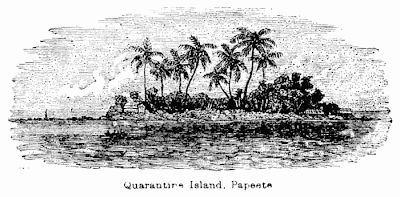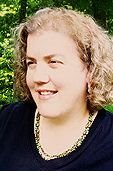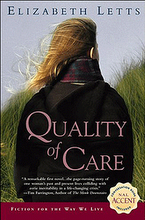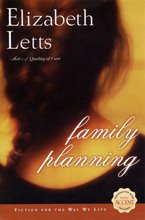
 As a child, I loved any book that had covers, and would even stoop to books with the covers ripped off if necessary. But, I had a special weakness for books where big families lived in old Victorian houses with damp cellars and tower rooms with velvet curtains, houses that had streams running through the back yards.
As a child, I loved any book that had covers, and would even stoop to books with the covers ripped off if necessary. But, I had a special weakness for books where big families lived in old Victorian houses with damp cellars and tower rooms with velvet curtains, houses that had streams running through the back yards.Growing up in a modern ranch house in Southern California, it seemed that bookish things happened in bookish houses. I desperately wanted bookish things to happen to me, and there were no bookish houses anywhere in my neighborhood, none in my town.
My plan was to grow up to be a writer, and I planned to write books about bookish houses-- books with lots of porches and gables and turret rooms, and secret things hidden away in them.
There was a short list of books that fulfilled my greatest book house fantasies: The Velvet Room, by Zilpha Keatley Snyder, The Four Story Mistake, by Elizabeth Enright, and a third in which there was magic jewel encrusted in the window of a secret room that enabled the childred to travel back in time. Of those three, I owned paperback copies of the first two. The third one I checked out repeatedly from the library.
By the time I had reached adulthood and wanted to shared the books with my own girls, I could no longer remember the name of the third book, nor enough pertinent details to describe the third book to a librarian. I remembered only a big Victorian house and a magical jewel... beyond that, I was lost. I assumed that it was an obscure book that had long since gone out of print.
Fast forward thirty years, I live in the east, where I still don't live in a book house, but at least there are lots of them all around my neighborhood. I've succeeded in passing on my love of reading to my daughters, and I haven't shaken off the dream of growing up to be a writer who writes books about big houses with turrets and gables.
In fact, I've written a book about just such a house, it's about a woman who inherits an enormous old lake house from her grandmother and through secret letters and photographs she finds in an old trunk and she's able to reconstructs the secrets of her family's past. It's all terrific, except I can't sell it, and I'm discouraged.
One day, I'm browsing at the book store, and I come across a book called Three Junes. I read a few pages and I'm hooked. I don't normally buy hardcovers, but I have to buy this one. A few days later, I notice a brief mention of the book in my college alumni magazine. I realize that this is the author's first novel and that she is a few years older than I am. I read the book avidly, though I am humbled, because the book is brilliant. Though I don't normally write fan mail, I decide to write this author a letter telling her that she has inspired me.
Flash forward again, five years later. The author, Julia Glass, is now a New York Times bestseller and a National Book Award winner, and I am a twice published novelist, and then I have the opportunity to meet her through the kindness of a mutual friend, Jon Clinch.
Before the meeting, I come across an essay she has written in which she talks about books that have inspired her, and she mentions The Diamond in the Window. In a flash, it comes back to me, that this is my missing book.
Julia tells a wonderful story about how she met the author Jane Langton, for the first time, when she was eight years old. I google her, she has a website, her books are all in print. I mention her name to my mother who has been a fan of her mysteries for years.
There she was, under my nose for all these years.
I find a copy of The Diamond in the Window in my local independent bookstore, sitting on a shelf that I've perused a million times before. I buy it "for my daughter" but as I sit down to read it, an entire world comes back to me, and I find all of the half-forgotten memories that have been there all along. I am ashamed of the things that are so woven into the fabric of my imagination that I thought I had made them up myself and there they are, sitting in the pages of The Diamond in the Window.
Julia Glass did not remember that she took a few minutes to send kind words of encouragement to me a long time ago when I was disappointed that I couldn't sell my book about a big house with lots of towers and gables and porches and trunks with old letters and photographs inside. Jane Langton doesn't know that I just mailed off The Diamond in the Window to my girls who are visiting their grandmother with the assurance not to worry that there are more in the series-- books that were written later that I never even knew about because I outgrew the children's section of the library.
Occasionally, a writer can have an influence that is directly personal, and other times a writer can leave traces that are profound but almost entirely forgotten.
One lesson is clear to me from all this. Those trips to the library as children stay with us for life.












